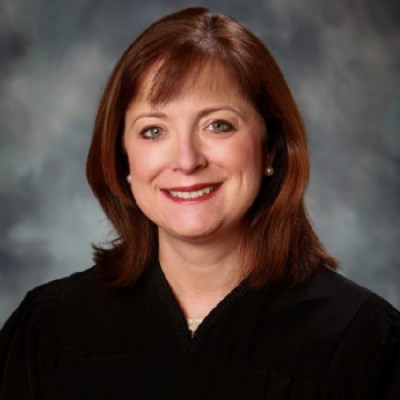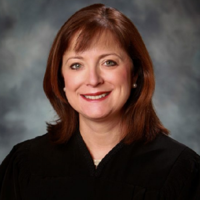
Illinois Southern District Judge Nancy Rosenstengel
EAST SAINT LOUIS, ILLINOIS - Keller Farms has been cleared to continue its lawsuit against railroad operator CSX over historic flooding, caused when water backed up into the community of Caseyville behind debris trapped under a railroad bridge, wiped out much of their crops in July 2022, as a federal judge ruled CSX can't use federal rules governing railroads to pull the plug on the legal action.
However, U.S. District Judge Nancy Rosenstengel said she couldn't similarly allow claims advanced by the village of Caseyville to also continue.
In the Sept. 9 ruling, Rosenstengel said she would allow Collinsville-based Keller to continue its lawsuit, because she agreed their claims have nothing to do with how CSX ran its railroad, but rather how it behaved as a landowner towards its neighbors.
And, as a landowner, the judge said CSX had a duty under Illinois state law to prevent its bridge from accumulating enough debris to cause the waters of the Little Canteen Creek to overspill its banks and flood neighboring properties.
The judge, however, said she was barred by legal doctrine from allowing the village of Caseyville to force CSX from compensating the village government and its taxpayers for the costs the village government paid to evacuate residents or otherwise respond to the flooding emergency.
Rosenstengel, however, dismissed the village's claims without prejudice, giving Caseyville the chance to amend their complaint and address the shortcomings she identified in their pleadings.
Caseyville and the Kellers had first dropped their lawsuit in St. Clair County Circuit Court in 2024, about two years after the flooding.
The lawsuit centered on widespread damage and "devastation" in and around Caseyville as a result of flooding, which occurred on July 25-26, 2022.
In that flooding event, heavy rainfall led to the Little Canteen Creek becoming swollen and rising to the point it swamped a flood control levee, releasing floodwaters throughout Caseyville.
According to published reports and court documents, the cause of the levee failure was caused by an unnatural buildup of water caused when the creek's flow was stopped by a dam, of sorts, caused by debris that had collected under a CSX railroad bridge for decades.
According to court documents, the debris had not been cleared under that bridge for at least 40 years.
In the lawsuit, Caseyville claimed CSX should be forced to repay taxpayers for the emergency costs incurred responding to the flood, allegedly caused by their alleged failure to take care of the land they owned under and around their bridge.
Keller claimed CSX should be forced to pay them damages for their substantial crop losses caused when the creek overspilled onto their farm fields, among other damages.
In response, CSX removed the lawsuit from St. Clair County state court to federal court in Southern Illinois District Court.
The railroad asserted the legal claims against it related to the flooding should be negated by federal law which prevents it from being sued or regulated by local governments or landowners over how it operates its railroad.
CSX further cited Illinois' so-called municipal cost recovery rule, which generally bars cities and other municipalities from suing private parties over alleged municipal expenses. That legal doctrine exists to prevent public bodies from unfairly shifting public costs onto private parties.
In court, the plaintiffs rejected CSX's assertion, saying their claims were related only to CSX's alleged failures as a landowner, for allegedly causing them to suffer extensive damage and costs from the flooding, which they said would not have occurred but for CSX's alleged failure to clear debris that posed a clear danger to those living and working nearby.
“The fact that they are a railroad plays no part in the case whatsoever," Caseyville village attorney Doug Stewart argued in court in April. "There is just coincidentally a railroad line on top of that bridge.”
Rosenstengel delivered a split decision, saying Keller could continue their claims, but the village had fallen short, for now.
Keller was represented by attorney Jason Johnson and Patrick Stufflebeam, of the James Kelly Law Firm, of Peoria.
CSX was represented by attorney Charles Swartwout, of Reifers Holmes & Peters, of Belleville.


